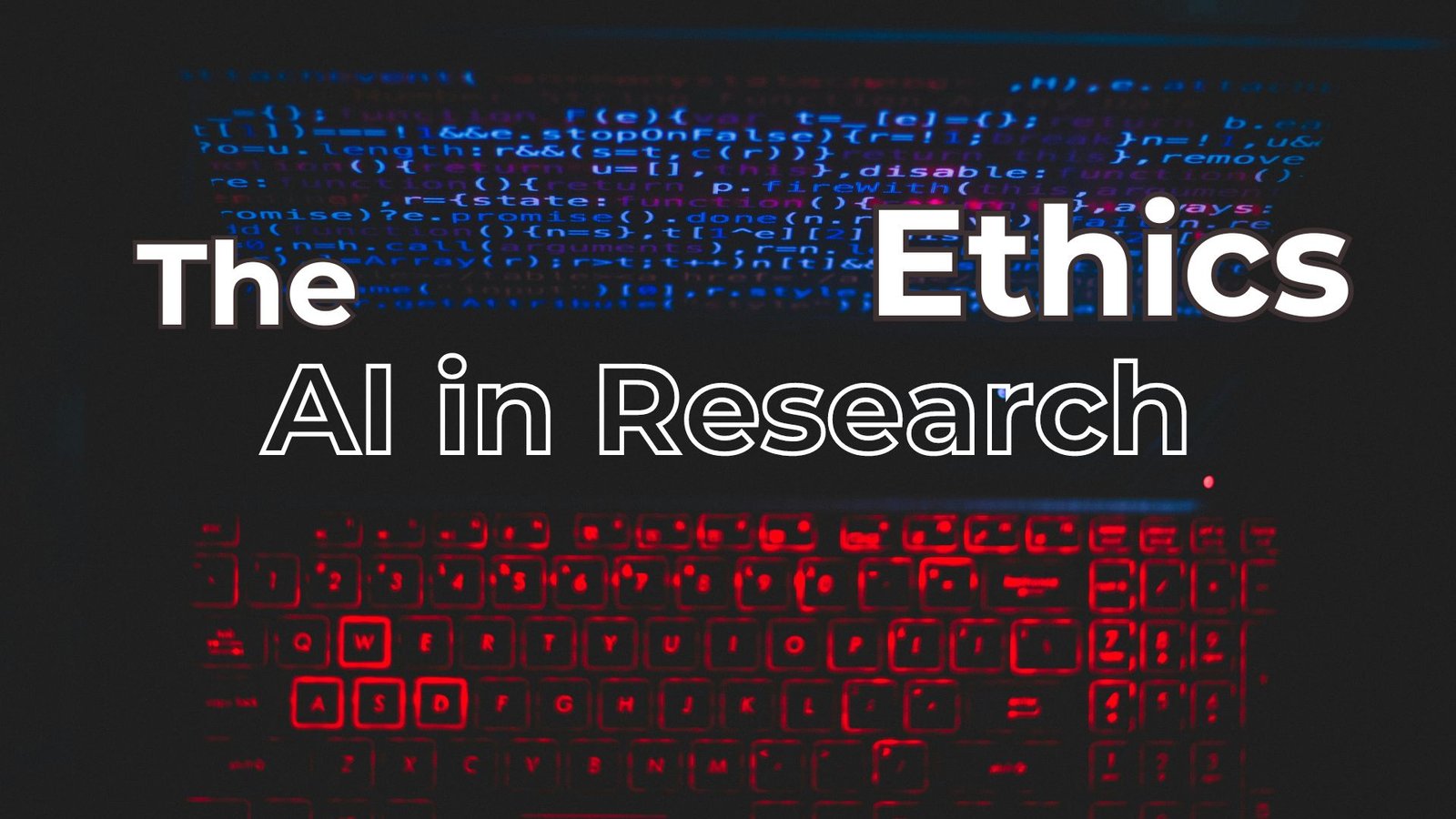Latest Ethical Considerations When Using AI for Survey Data Analysis
October 8, 2024 | by Jean Twizeyimana

Discover the essential ethical issues related to AI’s application in survey data analysis. If you research or work as a data scientist, read on to learn an overview of how technology and its results can be beneficial, but remain responsible. Surveys? Oh dear, how artificial intelligence has changed how we analyze the data we get! Now, how are we forgetting about the ethical issues that may come with all this development? We, as researchers, have a trove of information at our fingertips, but we must be very cautious with it. Are you aware that 73% of consumers are worried about how AI manages their data? Which is, in fact, something we can ill afford to wake up from! This article examines the morality of using artificial intelligence in survey processing. I promise you that you will be an ethical AI wizard at the end of this!
The Promise and Perils of AI in Survey Analysis
We are now witnessing that AI has delivered revolutionary advantages to survey analysis. Oh boy, it feels like having a super-intelligent secretary who will go through the information and calculate thousands of results in the shortest time possible! Using machine learning, actual patterns that might have taken months to identify and demonstrate can be discovered.
But here’s the catch – with great power comes great responsibility. As we embrace AI in survey data analysis, we need to be aware of potential risks:
- Bias amplification: AI can inadvertently magnify existing biases in our data or introduce new ones.
- Privacy breaches: The more data we collect and analyze, the greater the risk of compromising respondents’ privacy.
- Misinterpretation: Sometimes, AI might draw logical conclusions but miss important contextual nuances.
Remember the infamous case of the AI recruitment tool that showed bias against female candidates? That’s a prime example of AI ethics gone wrong in data analysis. We need to stay vigilant to avoid similar pitfalls in survey research.
Ensuring Data Privacy and Consent
Let’s talk about the elephant in the room – data privacy. It’s not just about legal compliance; it’s about respecting our survey participants and building trust. Here’s how we can ace this:
- Help with robust data anonymization techniques. It’s not just about taking names; it’s about ensuring that a mix of data can’t identify you.
- Be transparent about consent. If AI will analyze the responses, participants need to know it.
- No sneaky business here! It would help to find a balance between privacy protection and data utility. It’s a balancing act. First, we can gain insights without harming privacy only if we plan carefully.
Remember, ethical AI practices in survey analysis aren’t just about avoiding trouble – they’re about building a foundation of trust with our respondents.
Addressing Bias and Fairness in AI Algorithms
Bias in AI is like a stubborn stain – it’s tough to get rid of, but ignoring it only worsens things. Here’s how we can tackle this challenge head-on:
- Identify and mitigate algorithmic bias. Regularly test your AI systems for unfair patterns or outcomes.
- Diversify your training data and development teams. Various perspectives help spot biases that a homogeneous group might miss.
- Conduct regular audits and bias testing. Think of it as a health check-up for your AI – it helps catch issues before they become significant problems.
By addressing bias, we’re not just improving our AI systems but contributing to a fairer, more inclusive research environment. Now that’s something to be proud of!

Transparency and Explainability in AI-Driven Insights
Have you ever heard of the “black box” problem in AI? It’s when an AI system makes decisions, but we can’t explain how or why. In survey analysis, this lack of transparency can be a real headache. Here’s how to shine a light into that black box:
- Deliver understandable AI decisions to humans. Use techniques like LIME to explain complex AI decisions. LIME stands for Local Interpretable Model-agnostic Explanations.
- How to explain AI-generated insight from a survey in plain language. Without a Ph.D. in computer science, your stakeholders should understand your results.
- Allow techniques to shield you from the complexity, but maintain clarity as you do so. Of course, AI can find deep insights. But our mission is to package them in a way people can use.
Remember, transparency builds trust. When we can explain our AI-driven insights clearly, we’re more likely to see those insights put into action.
Maintaining Human Oversight and Accountability
As impressive as AI is, it’s not infallible. That’s why human oversight is crucial in AI-assisted survey analysis. Here’s how to keep the human element front and center:
- Define the role of human experts. They should be actively involved in interpreting AI-generated insights and making final decisions.
- Establish clear lines of responsibility. When AI is involved, accountability can become murky. Don’t let that happen!
- Create ethical guidelines and governance structures. These are the guardrails that keep your AI on the right track.
Maintaining human oversight ensures that AI remains a powerful tool in our research arsenal rather than an uncontrolled force.
Ethical Data Storage and Retention Policies
Last, after the analysis, let’s discuss what happened to all the valuable survey data. Ethical considerations don’t end when the report is delivered. Here’s what to keep in mind:
- Determine appropriate data retention periods. How long do you need to keep that data? The answer might be shorter than you think.
- Implement secure storage practices. Treat sensitive survey data like a valuable asset and protect it accordingly.
- Consider the ethics of data sharing and secondary use. Just because you can share or reuse data doesn’t always mean you should.
By thinking through these issues, we’re not just being good data stewards – we’re building a foundation of trust with our survey participants that will serve us well in future research endeavors.
Conclusion
Hew! If we still need to go further in our ethical AI journey, we have covered a lot of ground. Privacy concerns and bias mitigation are just a few things AI survey data analysis is as complex as it is exciting. But let me tell you, grasping these ethical considerations isn’t about not falling into a pitfall: trust and accuracy building, accurate potential unlocking, and AI in the research process. Be careful what you ask of them; great power comes with great responsibility. As we push the boundaries of what’s possible with AI, let’s always ask ourselves: “Isn’t this just innovative and ethical?” When we do this, it’s not just about analyzing data; it’s about constructing future AI-human values. So, what’s your next move? Will you be the champion of ethical AI in your organization? It’s a broad field with a considerable impact. And our data and survey fans deserve nothing less – perhaps we should raise the bar for ethical AI use in our survey analysis.
RELATED POSTS
View all



